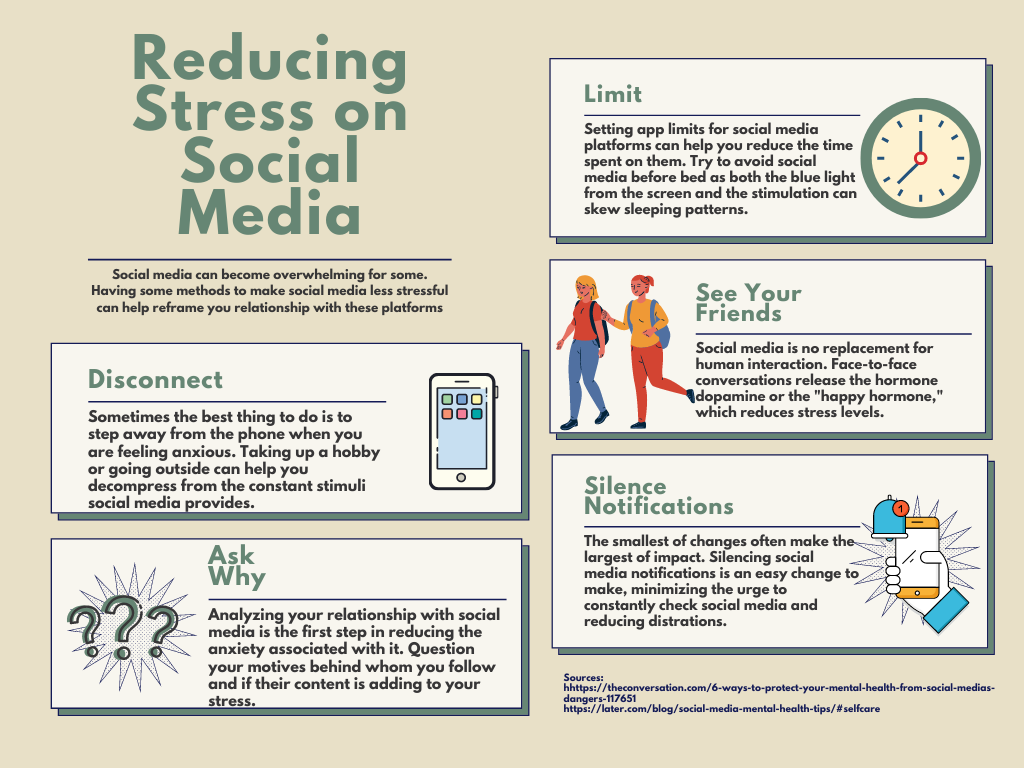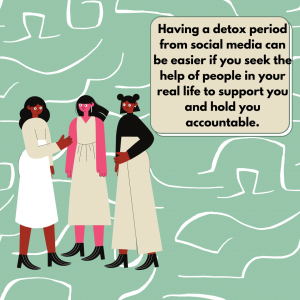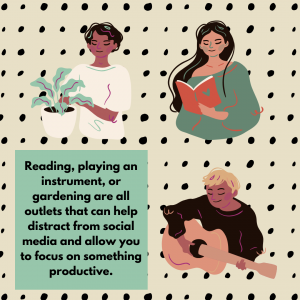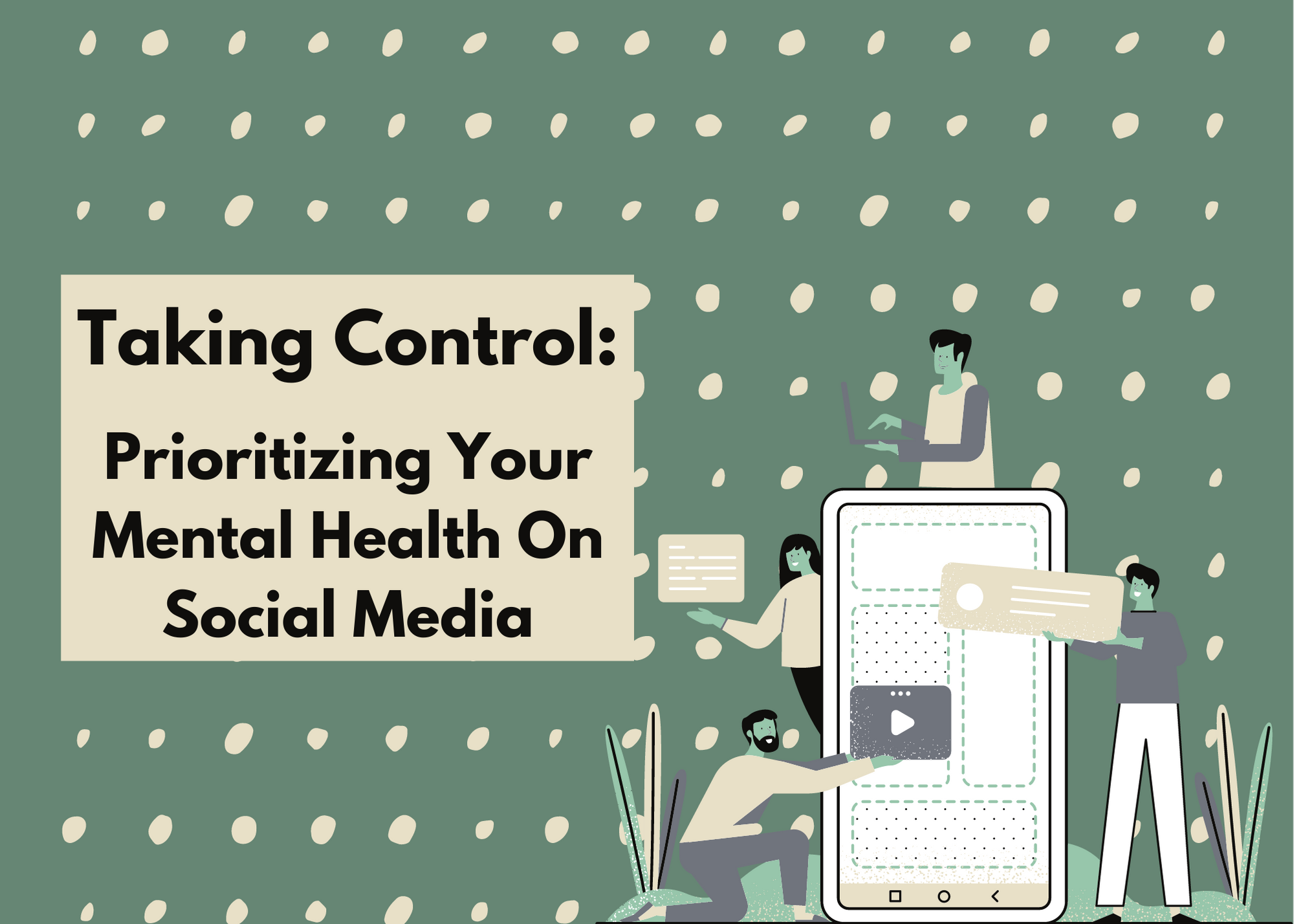Social media is a tool, and forming a healthy relationship with how you interact with it is key to getting the most out of your time online. These platforms are not going anywhere, and so managing your online usage is the best way to enjoy the benefits from these platforms without suffering the consequences of overexposure.

Disconnect From Social Media
Limiting time on social media platforms can help reduce the stress associated with it. Having planned times or time limits for social media can help lessen one’s dependency and frequency. Some apps even allow you to set customized time limits through phone settings.

See People In Real Life
It takes face-to-face social connections to have the body release the chemical dopamine, which can help reduce stress. Meeting up with friends and family and talking can be a great way to de-stress and strengthen your relationship.
Have A Hobby That Does Not Involve Technology
Disconnecting from the screen, in general, is good, for both your mental and physical health. Most U.S. adults average 6 hours a day in front of a screen, which can take a toll. Try and get some physical activity in at whatever level is comfortable for you or try out hobbies that can get you away from a screen for a while.

Question Why
Why do you use social media? Is it to escape real-world issues or is it for recreation? Being able to differentiate between this can help identify whether you have a healthy relationship with social media.
Self-reflection into how you feel before and after social media use can help also in analyzing your relationship with it. Seeing how you emotionally react to social media is important This can be a simple 1-10 scale, 10 being very emotionally reactive. If you feel substantially happier on social media than not it would be in your best interest to attempt to limit usage.
Monitor
Follow people that make you feel good. This may include friends and family, people that have similar interests, and pages that make social media enjoyable for you. Black, mute, and unfollow people and pages that may give you feelings of anxiety, frustration, or annoyance. Curate your content feed into a place that reflects what you truly enjoy and that will spark interest and enjoyment.
Here are some resources for further readings and if you are feeling stressed online:
- https://www.addictioncenter.com/drugs/social-media-addiction/
- https://socialmediahelpline.com/
- https://suicidepreventionlifeline.org/help-someone-else/safety-and-support-on-social-media/
Read More on Social Media and Mental Health:
- https://theconversation.cm/6-ways-to-protect-your-mental-health-from-social-medias-dangers-117651
- https://www.mcleanhospital.org/essential/it-or-not-social-medias-affecting-your-mental-health#:%7E:text=Using%20it%20activates%20the%20brain’s,depression%2C%20and%20even%20physical%20ailments.
- https://www.helpguide.org/articles/mental-health/social-media-and-mental-health.htm
- https://www.centreformentalhealth.org.uk/sites/default/files/2018-09/CentreforMentalHealth_Briefing_53_Social_Media.pdf
